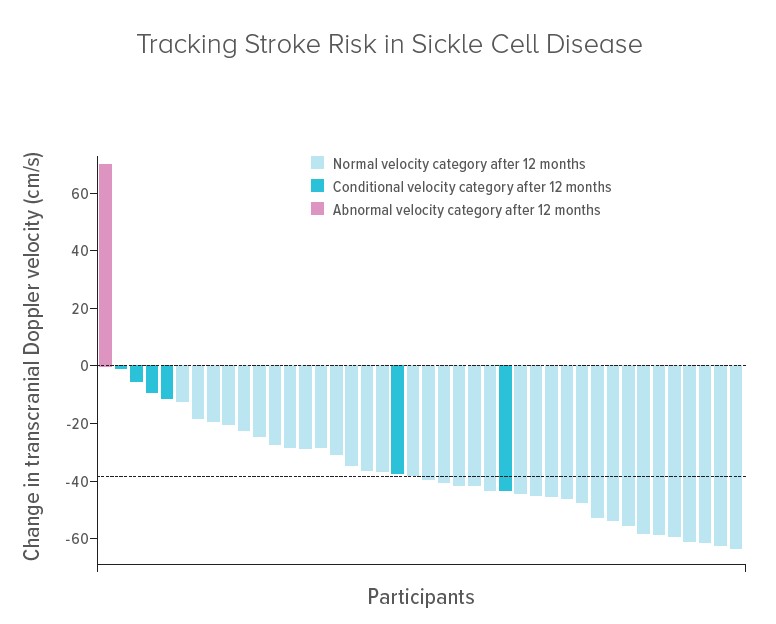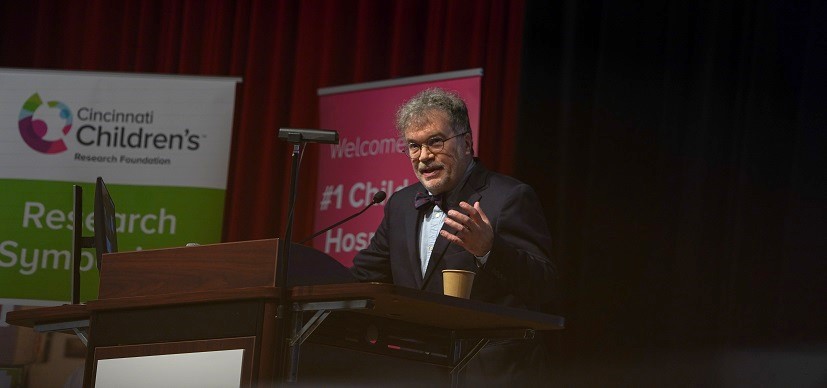Dose-Escalated Hydroxyurea Lowers Stroke Risk for Children with Sickle Cell Anemia
Research By: Teresa Latham | Luke Smart, MD
Post Date: March 1, 2023 | Publish Date: Mar. 1, 2023
Cancer & Blood Diseases Institute
Hematology | Top Scientific Achievement


Transcranial Doppler ultrasound screening with monthly blood transfusions is known to lower stroke risk in children with sickle cell disease. However, limited equipment, lack of trained Doppler operators and the absence of a safe and reliable blood supply decrease the viability of this stroke prevention strategy in countries where resources are scarce.
Now, a study led by investigators from Cincinnati Children’s shows there is another effective stroke prevention option. It involves transcranial ultrasound performed by a trained nurse and prescription of oral hydroxyurea therapy at the maximum tolerated dose.
The study looked at 196 children with confirmed sickle cell disease living in Tanzania. Their average age was 6.8 years. After undergoing transcranial Doppler screening by a trained nurse, 47 of the children were found to have elevated Doppler velocities causing high risk for stroke.
To help prevent stroke, 45 of these 47 children received oral hydroxyurea. They started at 20 mg/kg once daily and escalated every eight weeks by 5 mg/kg until they reached their maximum tolerated dose—a mean of 27.4 mg/kg per day.
On average, Doppler velocities decreased 35 cm/s among the 42 participants who completed 12 months of treatment. Thirty-five of the 42 had reverted to normal velocities, while just seven had persistently elevated velocities (six conditional, one abnormal). After 24 months of hydroxyurea therapy, 36 of the 42 children had normal velocities.
“The swift and sustained reduction in velocities shows that hydroxyurea dose escalation can be an effective stroke reduction strategy for children with sickle cell anemia, particularly in low-resource areas of sub-Saharan Africa, where the disease is most prevalent,” says corresponding author Luke Smart, MD.
Other Cincinnati Children’s staff involved in the research include Russell Ware, MD, PhD; Adam Lane, PhD; and Susan Stuber.
View more discoveries from 50 research divisions and areas
Return to the 2023 Research Annual Report main features
| Original title: | Hydroxyurea with dose escalation for primary stroke risk reduction in children with sickle cell anaemia in Tanzania (SPHERE): an open-label, phase 2 trial |
| Published in: | The Lancet Haematology |
| Publish date: | Mar. 1, 2023 |
Research By








